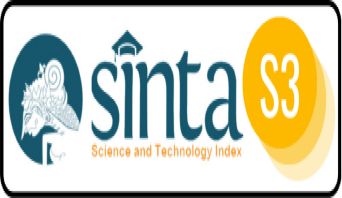PEMANFAATAN SAMPAH ORGANIK PASAR SEBAGAI PAKAN IKAN
DOI:
https://doi.org/10.26630/rj.v12i1.2749Keywords:
Sampah organik, pakan, ikanAbstract
Berbagai aktifitas manusia menghasilkan sampah. Semakin banyaknya sampah menimbulkan masalah kesehatan. Sebenarnya, sampah organik masih dapat dapat dimanfaatkan sebagai pakan ternak seperti ikan.
Penelitian eksperimen menguji penambahan dosis sampah organik pada dedak agar dapat menjadi pakan ikan. Variasi perlakuan terdiri dari variasi dosis penambahan hasil fermentasi terhadap bahan pakan. Dengan dosis yang ditambahkan terdiri dari 3 kategori yaitu 25%, 45%, dan 65% untuk setiap 5 Kg bahan baku.
Hasil penelitian mendapatkan bahwa kandungan karbohidrat yang terdapat dalam pakan dengan penambahan dosis sampah organik 25%, 45%, dan 65% memenuhi syarat untuk diberikan kepada ikan herbivora dan omnivora.Downloads
Published
How to Cite
Issue
Section
License
Copyright (c) 2021 Ruwa Jurai: Jurnal Kesehatan Lingkungan

This work is licensed under a Creative Commons Attribution-NonCommercial 4.0 International License.

Ruwa Jurai: Jurnal Kesehatan Lingkungan is licensed under a Creative Commons Attribution-NonCommercial 4.0 International License.
Authors who publish with this journal agree to the following terms:
- Authors retain copyright and grant the journal right of first publication with the work simultaneously licensed under a Creative Commons Attribution-Non Commercial License that allows others to share the work with an acknowledgment of the work's authorship and initial publication in this journal.
- Authors are able to enter into separate, additional contractual arrangements for the non-exclusive distribution of the journal's published version of the work (e.g., post it to an institutional repository or publish it in a book), with an acknowledgment of its initial publication in this journal.
- Authors are permitted and encouraged to post their work online (e.g., in institutional repositories or on their website) prior to and during the submission process, as it can lead to productive exchanges, as well as earlier and greater citation of published work.









